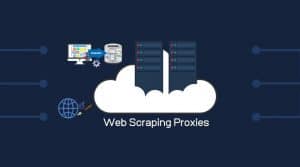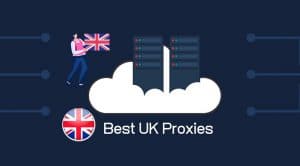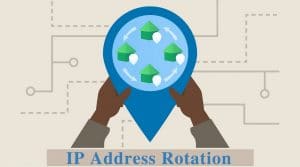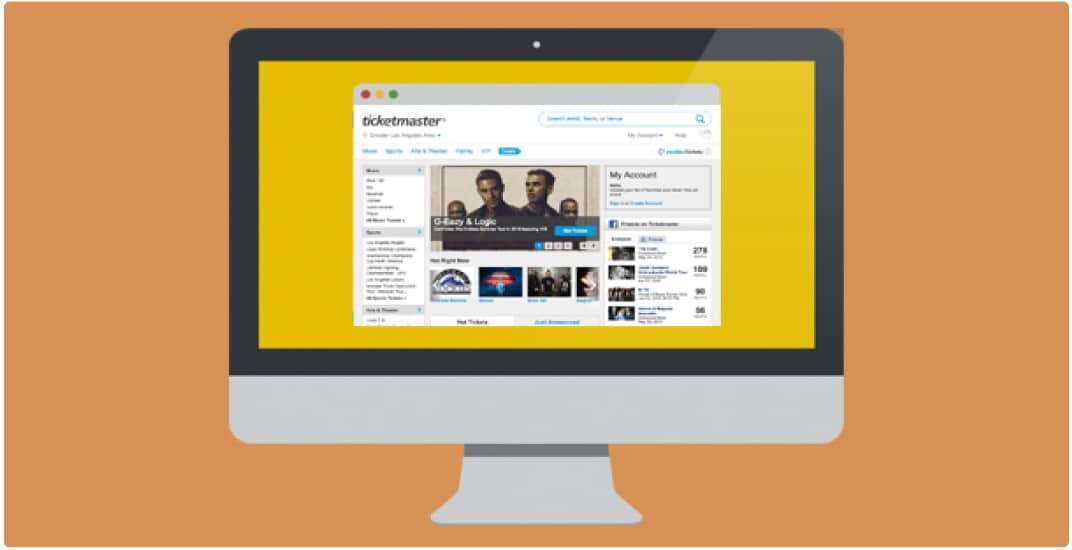
As you can maybe guess, purchasing batches of tickets from Ticketmaster with a bot is not allowed by the company, and is generally frowned upon in the music industry. This practice has led to the rise of scalpers who purchase tickets in the hundreds or thousands only to sell them at double or triple their original cost. This makes the attendance of said concerts and festivals questionable (since a single person can own hundreds of tickets), and the general practice of seeing live music less enjoyable.
What I’m trying to say is, if you’re going to take the advice of this article and use proxies to get Ticketmaster tickets, don’t abuse your powers. Use the proxies to make sure you and your buddies get tickets. Forcing ticket prices higher with tech is not a very fun game, and you won’t make many friends doing it.
Even with my opinions about scalping, it’s important to know how to use proxies on Ticketmaster. You want to at least level the playing field. I can’t tell you the number of times I’ve waited for the clock to strike 10:00AM for Radiohead tickets only to find were gone in a blink.
How is this possible? Proxies.
Ticket Master Proxy Primer
To give a primer on the subject, Ticketmaster is one of the most aggressive companies in the world when it comes to proxy bans. They really, really don’t like it when bots buy their tickets, and have a lot of excess cash devoted to stopping the practice. You, therefore, need to use your proxies wisely, and you need specific kinds of proxies.
Let’s start with the things that won’t work:
-
Free proxies won’t work.
This may be obvious, but if you’re thinking about using free proxies, even thousands of them, to help secure Ticketmaster tickets you will not succeed. The likelihood of those free proxies—which have been handled left and right all over the internet—not already being flagged in the Ticketmaster database is highly unlikely. Since they’re free you’re probably going to try anyway. Go ahead, try. Just don’t do it for a concert you really care about.
More: Are Paid Proxies Really That Much Better Than Free Proxies?
-
Shared private proxies won’t work.
Some providers offer paid proxies that are shared with a handful of users. Don’t get these for Ticketmaster. You will encounter similar issues as you did with the free proxies, in that one of these other shared users might get the IP addresses banned.
More: What is a shared proxy & Why is it much cheaper?
-
Static, unchanging proxies usually won’t work.
This step will be addressed much greater below. Some proxy services will give you, say, a batch of 10 proxies, but won’t change them very often (or ever). This won’t work for Ticketmaster Proxies because eventually, the company will ban your proxies, and you’ll need to find new ones.
More: Static IP proxy Vs. Rotating IP proxy

Essentially you’re going to need elite private proxies and ones that aren’t static, for Ticketmaster spinning (another word for buying tickets in bulk). But proxies are just the first step. You’ll also likely need a software application to help with the deployment of your proxies. These can get very expensive—the most popular one, Ticketmaster Spinner Bot, is $990. You can watch it in action here.
However, I’ll assume you’re ready for that investment, or want to find a coder who can work with you to make it happen. You’ll need software to help you because the goal is to open multiple purchase orders with Ticketmaster at the same time, presumably the moment the tickets go on sale. It’s too clumsy and slow to open multiple browsers and tabs, manually enter in all your purchasing info, and try to get tickets.
Those Radiohead seats will be gone by the time you click “Submit.” Software with a smart API will allow you to pre-load all of this information (your credit number, your address, your account information, etc.) and just click “Go” once.
The proxies are needed because if you did to this with your normal ISP IP, Ticketmaster would immediately block your account. You can open multiple purchase pages from the same IP address, but you can’t open dozens of them. So, you need proxies, and you need elite private proxies.
But you need more than that. You need rotating proxies.
5 Reasons Why You Need Rotating Proxies For Ticketmaster Spinning
Rotating proxies come from services that specifically that type specifically, and it means the proxies are rotated daily, sometimes hourly. Often providers sell batches of proxies, say 10-50, and rotate them every few hours. This will give you a fresh batch multiple times a day, which means your proxies won’t get stale, and even if they do you’ll have new ones soon. Here are the 5 reasons you need ‘em.
1. Hands-Free Service
This is the most obvious reason. With rotating proxies, you won’t need to manually check on your proxies. If you have dozens or hundreds of proxies running at the same time, you’ll need to check on them every hour or so to see if they’ve been banned by Ticketmaster. Then you’ll need to update, grabbing reserves of proxies from your provider, and upload those.
When you have a rotating proxy service, you will just need to enter your new proxies at the exact hour they are provided to you. Set a timer for that moment, copy and paste the new proxy list into your application, and continue spinning.
Likewise, you won’t have to do anything if a proxy gets banned. If you made a habit of getting your proxies banned, you’d have to explain yourself to your provider, and possibly talk to your ISP. This eliminates that hassle because banned or not, you’ll get new ones in a couple of hours.
It’s the first in the list because of how simple and straightforward it is.
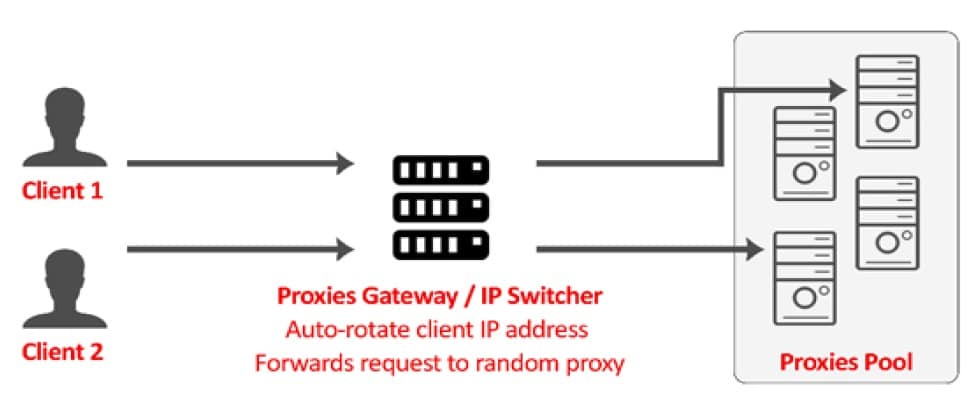
2. Less Captchas to Solve
Every Ticketmaster purchase will require a captcha. A captcha is that little part of a transaction where the company asks if you are a human. It asks this by displaying an image with hard-to-read warped words that you have to correctly decipher. I’m sure you’ve seen this and completed one.
Captchas are the main way Ticketmaster discerns if you’re a bot or not. Like any good protection measure, Ticketmaster doesn’t outright ban your account if it senses you’re a bot. It puts you and your IPs through a series of increasing captcha tests. The more Ticketmaster is concerned about your validity as a human, the more captchas you’ll have to pass.
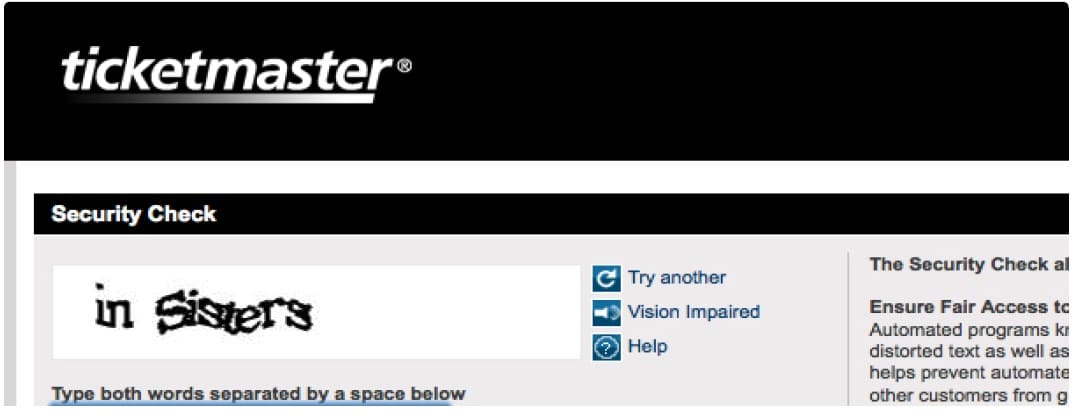
This is frustrating and time-consuming. Assuming all your proxies aren’t virgin proxies (proxies that have never been used before), rotating proxies will keep your captcha requirements low. Rotating proxies are less likely to get noticed or banned because they are used infrequently and inconsistently. This puts them on a lower totem pole of banned principles, which frees up your time.
Ticketmaster Bot Spinner, and other good programs, won’t bypass the Captcha system (it’s not possible to do that), but they’ll make you enter the Captha’s yourself in a row. This gets them out of the way before the tickets go on sale.
Residential and Rotating IPs
The next three examples go under the assumption that your rotating IPs will also be residential IPs. Often rotating IPs are sourced from residential IP lists because it’s easier to rotate pools of residential IPs, as opposed to data center proxies which are easier to sell in bulk.
I’ll note here as well that residential IPs have their own set o stigma in the proxy community and it can be hard to find a legitimate provider for them. Do ample research in this field before making a purchase.
3. Residential IPs are Hard to Detect
If your proxy provider is dishing out rotating IPs, the chances are they’ll be residential IPs as well. The main benefit of residential IPs is that they appear to be (because they are) coming from someone’s home. These IPs have a different identification number than data center IPs, which will allow them to be accepted by many more sites. Ticketmaster is one of those sites.
Ticketmaster wants to believe you’re a human being, and is weeding out all the bots who are clearly not. If your proxy IPs look like they’re real people from real homes, instead of data center obvious IPs, Ticketmaster will be a lot less likely to ban them.
Related: Does Residential IP Proxy never get blocked?
4. Slower Speeds Look more Natural
To go along with this, residential and rotating proxies should be a bit slower than data center proxies. This makes them look much more natural. If you’re requesting 500 tickets from Ticketmaster at once, with IPs that are all data center and therefore look a certain way, all at the same lightning speeds, a red flag will go up.
A good practice overall for Ticketmaster spinning is to reduce your ping speeds a little. This is especially the case with data centers, but rotating IPs have that capacity built-in too.
5. Rotating Proxies Are Cheaper in the Long Run
The proxy game is a tricky one. You might think the quickest proxies that activate immediately are best. The reality is that you want to play a long-lasting game with proxies, not a quick and brutal one.
If you are buying proxies for Ticketmaster spinning, consider how quickly a batch of non-rotating proxies will last — even if you have 500 or 1000, even if you’re careful and don’t use them 24/7. Even then Ticketmaster will eventually find you out because you’re using the same IP addresses.
This means you’ll need a full refresh from your provider, which they might be fine with the first couple times, but if you do it too often they’ll get upset.
The other factor is that Ticketmaster can ban entire subnets when it detects proxies, not a single IP address. Typically your non-rotating IP addresses will be in one large subnet or a couple of subnets. If you have 100 IPs all in one subnet and one, just one singular IP gets flagged by Ticketmaster, it could compromise all of those IPs.
While rotating and residential proxies might be a bit more expensive monthly, you won’t have to replace your IPs, subnets, and provider, so it will probably save you money in the long run.
Related, Why use Residential Proxies for Internet Marketing
In Summary
I don’t condone Ticketmaster spinning for mass scalping, but there’s certainly a method to the madness of getting in early on a good concert. This guide points you in the direction of rotating proxies, and there are a couple of good places to find them.
- Luminati.io is one such provider, One of the best residential proxies for Ticket sites, More details Here.
- StormProxies – Cheapest residential rotating IP proxies provider, Learn more.
- ProxyRack, though this one has some moral issues.
Remember, this is just for Ticketmaster. Rotating IPs are useful everywhere else, but not necessary. For Ticketmaster, who has one of the fiercest approaches to stopping proxy purchases, it’s extremely helpful.

